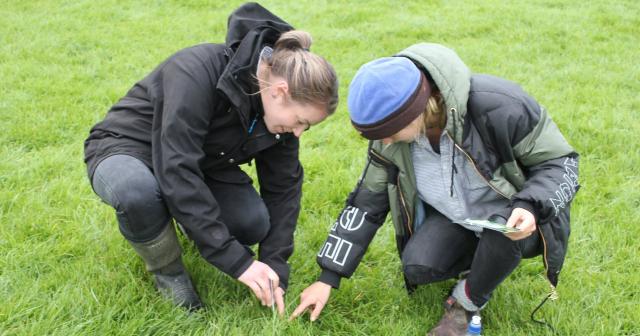The Government is currently consulting on vocational education reforms, which are set to reshape work-based learning. These changes will have a significant impact on training and career pathways for sheep, beef and deer farmers.

B+LNZ, along with a number of other primary industry groups, has some concerns about the current proposals.
B+LNZ is preparing a submission to ensure farmers’ voices are heard – learn more about our views below, including how you can have input into our position.
About the consultation
The Government is seeking feedback on two options for the future of work-based learning in New Zealand, following major changes to the vocational education system announced in December 2024 – access B+LNZ’s previous submission.
The consultation focuses on ensuring industry training is fit for purpose and meets the needs of sectors like sheep, beef and deer farming.
Key proposed changes include:
- Dissolving Te Pūkenga – This means the current structure, including Primary ITO, will no longer exist.
- New Industry Skills Boards – These boards will take over many of the functions of Workforce Development Councils (WDCs), including setting standards and supporting work-based learning.
- Work-based learning models under review – The Government is considering different approaches for delivering training, including partnerships between industry and independent providers.
The consultation period is open until 21 February 2025. You can read more about the proposals on the Ministry of Education’s website.
B+LNZ’s role and concerns
B+LNZ is working alongside other industry stakeholders to develop a robust submission that highlights the needs of sheep, beef and deer farmers, and outlines the concerns that we have with the two options and things that need to be clarified.
Given how critical a skilled and capable workforce is to the future of the red meat sector it is crucial that we get this right, especially if we are going to meet the Government’s doubling of exports objective.
There is a high degree of alignment across the agricultural sector in our views.
We met recently with Minister Penny Simmonds (Minister for Vocational Education) and Gillian Dungeon, Deputy Chief Executive of Tertiary Education Commission along with other primary industry leaders, to seek clarification on the proposals and to convey some of our questions and concerns.
While the Government has listened to some of the sector’s feedback during the initial process we still have some significant questions and concerns that we need clarity on with respect to work based learning:
- While we see the benefits of a collaborative model with strong quality assurance, it’s essential that work-based learning remains accessible to farmers in all regions, with sustainable funding and tailored pastoral care from within their own sector. It is currently not clear within the two options that this will be happen.
- Beyond apprenticeships, we also need assurance that the new system will enable those already working in the industry to access professional development opportunities through work placed learning to support moving up from a shepherd to a farm manager as this is critical for succession.
- We are also concerned about the impact of losing Te Pūkenga’s primary sector division – we believe this could limit the sector’s ability to meet its workforce development goals and support the Government’s targets for increasing primary sector exports.
How you can have input
We want to hear from farmers on how work-based learning enhances their business, workforce, and sector growth. Your feedback will strengthen B+LNZ’s submission.
Share your thoughts by completing this short survey.
More background on vocational education reforms
In September 2024, B+LNZ submitted a response to the Government’s review of the Vocational Education and Training (VET) system, advocating for a learner-centred approach, flexible training delivery, and strong industry involvement – access B+LNZ’s submission here.
Following this, the Government announced major changes in December 2024, including the disestablishment of Te Pūkenga and the introduction of Industry Skills Boards. Now, further targeted consultation is underway to refine the future model of work-based learning.
Decisions on stand-alone polytechnics, the structure of the work-based training system, the role of Industry Skills Boards, and funding mechanisms are expected to be made by Cabinet in mid-2025.
Read more about the targeted consultation on the Ministry of Education’s website.